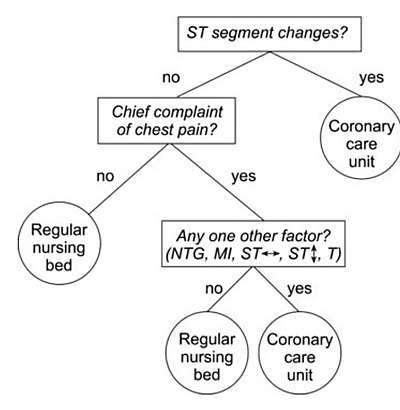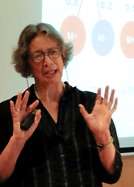Laura Martignon
| Laura Martignon | |
|---|---|
|
Professor Laura Martignon | |
| Born |
May 30, 1952 Bogotà, Colombia |
| Residence | Germany |
| Nationality | Italian and Colombian |
| Fields | Mathematics, Mathematics Education, Mathematical Modeling, Gender and Mathematics Education Decision Making |
| Institutions | Ludwigsburg University |
| Notable awards | Gleichstellungs-Preis 2008, Ludwigsburg University |
Laura Martignon is a Colombian and Italian professor and scientist. Since 2003 she serves as a Professor of Mathematics and Mathematics Education at the Ludwigsburg University and is an Adjunct Scientist of the Max Planck Institute for Human Development in Berlin, where she previously worked as Senior Researcher. She also worked for ten years as a Mathematics Professor at the University of Brasilia and spent a period of one and a half years at the Hebrew University of Jerusalem with a Research Stipend of the Israeli Government.
Training
Martignon obtained a Bachelor Degree in Mathematics at Universidad Nacional de Colombia in Bogotà (1971), a Master's Degree in Mathematics (1975) as well a PhD in Mathematics at the University of Tübingen (1978). She obtained her German Habilitation in Neuro-Informatics at the University of Ulm, Germany, in 1998.
Academic contributions

Martignon specialized in Mathematics Education and as an applied mathematician in Mathematical Modeling. As a modeler she collaborates in interdisciplinary scientific contexts. She applied functional analysis in Physics determinig criteria for the applicability of integral transforms in n-body reaction calculations ( ) and constructing Hilbert Spaces for the adequate embedding of observables and density matrices (). In Neuroinformatics she collaborated in neuroscience teams modeling snychronization in spiking events of groups of neurons, testing the first valid measures of such phenomena ( ). Yet her main contributions as a mathematical modeler have been in the fields of Probabilistic Reasoning and Decision Making. In 1995 she was one of the founding members of the ABC Center, i.e., the Center for Adaptive Behavior and Cognition, led by Gerd Gigerenzer under the umbrella of the Max Planck Society, first in Munich (1995-1997) and then in Berlin (since 1997). With her colleagues from ABC she modeled the fast and frugal take-the-best heuristic as a non-compensatory linear decision model characterizing its ecological rationality[MH]. She is best known for having conceptualized and defined Fast-And-Frugal trees for classification and decision [MKW][WHM] proving their fundamental properties and creating a theoretical bridge from the concept of natural frequencies [1] to simple, fast and frugal heuristics.
Today her work on reasoning and decision making motivates most of her research in Mathematics Education. With Stefan Krauss and other colleagues - both from ABC and from her Institute of Mathematics at the Ludwigsburg University - she has propagated the tenets of the ABC Group on the advantages of natural information formats and simple reasoning heuristics as a topic for Mathematics Education mainly in the field of Probability and Statistics [MK]. With Gerd Gigerenzer and Ulrich Hoffrage, as well as with members of the Harding Center [2], she is propagating Risk Literacy among children and youngsters. After having analyzed probabilistic reasoning for decades she is now collaborating with Keith Stenning, studying probability-free judgement based on defeasible logics and its impact for Mathematics Education. [SMV]
She has also done research in the field of Gender and Mathematics Education leading a project on the topic at her University and founding the publication Mathematik und Gender. [3]
References
- ↑ Gigerenzer & Hoffrage 1995 - How to Improve Bayesian Reasoning Without Instruction: Frequency Formats "
- ↑ Harding Center for Risk Literacy "Harding Center for Risk Literacy"
- ↑ Martignon, L. Mädchen und Mathematik. In: Matzner, A.; Wyrobnik, I. (Hg.): Handbuch Mädchenpädagogik - Handbook of Pedagogy for Girls. Weinheim: Beltz - 2010
Selected publications
- Books
- Simple Heuristics that Make us Smart (1999) Gigerenzer, Todd and the ABC Group, Oxford University Press
- Nachhaltigkeit und Gerechtigkeit (2008) de Haan, G., Kamp, G., Lerch, A., Martignon, L., Müller-Christ, G., Nutzinger, H.G., Springer: New York
- Matrizes Positivas - Impa Press.
- Articles
| MH. | Martignon & Hoffrage 2002 "Fast, frugal, and fit: Simple heuristics for paired comparison" |
| MKW. | Martignon, Katsikopoulos & Woike 2008 "Categorization with Limited Resources: A Family of Simple Heuristics" |
| MK. | Martignon & Krauss 2009 "Hands-On Activities for Fourth Graders: A Tool Box for Decision-Making and Reckoning with Risk" |
| SMV. | Stenning, Martignon & Varga, 2017 Probability-free judgment: Integrating Fast and Frugal Heuristic With a Logic of Interpretation |
| WHK. | Woike, Hoffrage & Martignon, 2017 - Integrating and testing Natural Frequencies, naive Bayes and Fast-and-Frugal Trees. |
See also
- Max Planck Institute for Human development
- Mathematics and Gender at the Ludwigsburg University
- Patents by Inventor Laura Martignon
External links
- Interview with the SWR (South-West Radio Channel) on "Wie wir uns von Statistiken täuschen lassen" (How statistics deceive us)
- Mathematik und Gender – Dezember 2008
- Mathe bringt Glück -- im Deutschland funk
- Gender Curricula
- Ludwigsburg University
- Laura Martignon publications indexed by Google Scholar
